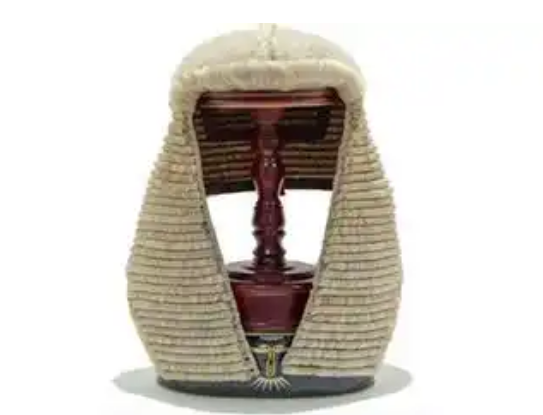The Body of Senior Advocates of Nigeria (BOSAN) has faulted the selection process where mediocre and incompetent justices are appointed to the bench of the Supreme Court and the Court of Appeal on the policy of geographical spread.
The body noted that the attendant risk and dangers of such policy in Nigeria’s judiciary are too grave and should be discarded.
BOSAN’s position was contained in its speech delivered by Thomson Okpoko at the valedictory session of the Supreme Court in honour of retired Justice Abdu Aboki.
The body called on the National Judicial Council (NJC), as the appointing authority, to address the issue and appoint the best candidates to man our courts.
“The body has said it times without number and in various fora that the method of selection of candidates for appointment of Justices in the Supreme Court and the Court of Appeal is unsatisfactory in the extreme.
“The appointment process appears to have been designed and operated to exclude good and competent lawyers in the legal profession from being appointed Justices of our appellate courts.
“There are two aspects of this restrictive policy by the appointing authorities. The first is that the appointing authority appears to have established a policy that the vacancies created by the exit of Justices of the Supreme Court or the Court of Appeal are to be filled by picking a candidate from the state of the vacating justice only notwithstanding the availability of known better candidates readily at hand from other states or Local Government Areas in case of Judges at trial courts.”
BOSAN said the consequence of the above policy is that “by it, our nation, our citizens, foreign and local businessmen/ women who use and or are expected to resort to the courts of law for the resolution of their problems in Nigeria are denied the opportunity of having their cases considered and decided by appellate courts manned by best legal minds, the nation can produce at any time. This is a very sad reflection on our nation and the nation’s judiciary.
“The policy of geographical spread in public service and in public service appointments is acknowledged today, to be the foundation for the mediocrity and incompetence in some areas of the public service of our nation.”
He recollected how the Supreme Court in the past was manned by five Nigerian jurists who were from the Yoruba and Igbo tribes, but who were the best in the country.
“So we asked, what justification is there to exclude good, competent and available candidates from the Bar and operate the policy of replacement to be the basis for the selection and appointment of candidates to man appellate courts?
“The National Judicial Council as the appointing authority should address this issue and appoint the best candidates of our country to man our courts. After all, Justice is blind and so does not look at or see the faces of litigants.
“Justice knows no tribe and has no colour or religion. It has no specific location because it is everywhere. Let no one put on the Nigerian judiciary the iron-clad case restricting the appointment of our justices in the manner complained of.”
In his speech, retired jurist Justice Aboki called on the National Assembly to consider amending the Constitution and other extant laws in such a way that only appeals relating to the presidential election should come to the Supreme Court, while others should end at the Court of Appeal.
This, he explained, is to reduce the number of appeals coming to the Supreme Court particularly made reference to election-related matters.
He equally called on the Chief Justice of Nigeria and the Legal Practitioners’ Privileges Committee to review the requirements for the conferment of the rank of Senior Advocate of Nigeria to the extent that it will reduce unnecessary pressure on the court.
“There is a need for us to note that the Supreme Court of Nigeria is a policy court, which should only deal with matters of complex legal nature, and so it should be,” Justice Aboki stated.
Earlier, the acting Chief Justice of Nigeria (CJN), Justice Olukayode Ariwoola, described Justice Aboki as a specimen of doggedness, integrity and humility.
“We admire him passionately within our fold, and I can assure you that so many people are queuing up to follow his footsteps in the outer world where his lordship is now going in a blaze of glory with impenetrable judicial sagacity.”
He has made a remarkable imprint in his career and also in the development of his fatherland and the generality of humanity. He is an enigmatic personality whose name has become a recurring decimal in the annals of the Nigerian judiciary, ostensibly for his robust scholarly disposition and alluring erudition,” the CJN stated.
Justice Aboki who was born in Kano State on August 5, 1952, has retired from the bench of the Supreme Court after attaining the mandatory retirement age of 70 years.
With his retirement, the numerical strength of the Supreme Court has been reduced to only 13 justices, as against the required 21 under the 1999 Constitution.











